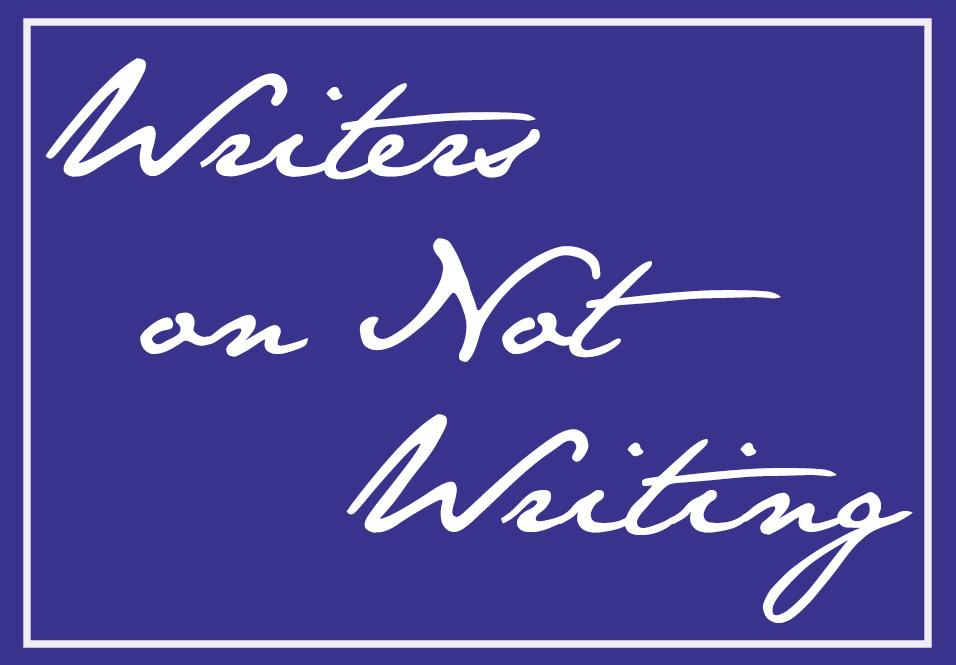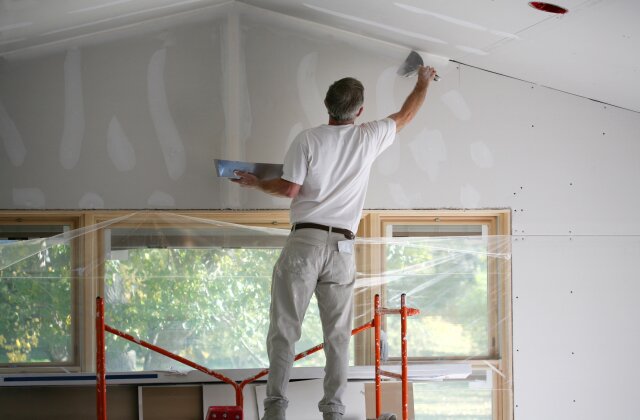Writers pour so much energy into their craft that sometimes we forget that creative pursuits other than writing can fill us up in other important ways. Here, we’ll look at what writers do when they aren’t writing, and how those pursuits affect the return to the page. This month, we hear from two writers—Sean Macgillicuddy and Alex Dezen—on how reading fuels their writing.
What fills you up creatively when you’re not writing? If you’d like to contribute to the Writers on Not Writing series, email jen@mastersreview.com. We can’t wait to hear from you!

When I’m not writing I read. I read novels and essays and poems and news, but not so much comments or screeds. Because what I read impacts my soul. So that if I’m reading an essay by the American poet Anne Boyer called Not Writing, or her companion piece On Not Writing, and the projects Anne Boyer isn’t working on—like the novel she’s not writing called Bitch’s Maldoror which is a sequel to another novel she isn’t writing called Kansas City Spleen—if the projects Anne Boyer isn’t working on are more interesting than the projects I’m working on, then… we have a problem. That’s when I go out and weed. And dig, and sow, and mulch, and prune, and sink my hands into the soil. I’ve read beautiful pieces about gardening as a metaphor for writing, or a place to generate or untangle ideas that elude you, to inspire, but, for me, when I’m in the garden I don’t think about Anne Boyer or whether at sixty-one I’m too old to be an emerging writer even though I’ve been writing seriously for forty years, in the verb sense, but never pursued it in the noun sense, as something I wanted to be, in the garden I’m kind of just now. In the here, and also the now. Anne Boyer writes about work. She says not writing constitutes work, or a kind of production, where writing is born. Or maybe not born, but shaped. Or maybe not shaped, prepared. When I’m not writing I teach my ten-year-old son how to make chicken pesto pasta by getting all the ingredients and whatever condiments he’ll need, the utensils, and spreading them out on a bench. I say: This is the stuff of your dish. The words, paragraphs, scenes, themes—and after we’ve prepped, we cook. So that when I’m not writing I eat. And clean, and drive, and walk, and paint, and when I’m not writing I sleep. Anne Boyer talks about dreams. She says that “dreams are more like writing than not writing in that they are not intruded upon in their moments by the necessities” of… life. Of not writing. Is that right? Also talking. When I’m not writing I talk. And listen, and also remember, also nostalgia (to music), and art. The viewing and making of art. In gardens, on canvas, in food. In parenting. So that not writing becomes a kind of aggregate—piano, listening, sitting, showering, dreams (perhaps), and sleep—that produces (in equal measure?) writing. I wonder what she thinks about love. I think that love is more like writing than not writing in that it is reached or realized by all the senses all at once and isn’t intruded upon by life. I also wonder about people who “have a novel in them.” And whether not writing only applies to writers, and that when you become a writer, when you decide that writing is the thing you want to do, and be (in the noun sense of the word), there’s not writing, and there’s writing, and the whole idea of pursuits or creativities extraneous to this enterprise of being turn writing into a hobby. Or something. A silence. Anne Boyer writes: “It is easy to imagine not writing.” And by not writing here, at the end of her piece, she means no longer writing at all. She explains that writing steals from her loved ones and her already empty bank account and gives her ideas she neither needs nor wants. It’s a powerful argument. But I think, for me, the sometimes mysterious dynamics of writing and not writing outweigh the practical considerations of, well, life. You know? So that everything I do is somehow everything else, and when I’m not writing I read.
Sean Macgillicuddy
I spend a good amount of time reading; I try to read about fifty to seventy-five books a year. Is that creative? I’ve also been a songwriter and touring musician for most of my life, though I don’t spend as much time doing that these days. Truth be told, I don’t know that I do very many creative things when I’m not writing or making music, which maybe sounds a little sad. I spent the better part of my adolescence and adulthood either making music, playing music, or writing, so a little quiet time to be present with my friends and family—that’s what I crave these days. Certainly more than creating anything per se. I’m certainly not someone who writes every day. I also run a literary journal called Nulla, and that takes up a good amount of time.
 I love being lost in a book. I really do. And I find that to be harder and harder these days with all the distractions we have beeping and pinging at us. I love reading about and hearing about people’s lives, especially the non-controversial, conventional ones. The End of Vandalism by Tom Drury is one of my favorite books for this very reason. I love commonality and loathe exceptionalism. Talent bores me. Watching people wrap sandwiches in wax paper would be a hobby of mine if that wouldn’t be creepy. My Instagram algorithm is hoof trimming, drywall Olympians, and plumbing repair.
I love being lost in a book. I really do. And I find that to be harder and harder these days with all the distractions we have beeping and pinging at us. I love reading about and hearing about people’s lives, especially the non-controversial, conventional ones. The End of Vandalism by Tom Drury is one of my favorite books for this very reason. I love commonality and loathe exceptionalism. Talent bores me. Watching people wrap sandwiches in wax paper would be a hobby of mine if that wouldn’t be creepy. My Instagram algorithm is hoof trimming, drywall Olympians, and plumbing repair.
If anything, they help me focus greater attention on the minutiae of life, which is where I find the most comfort. I think my mind tends to work very quickly, and I can often become frustrated when things aren’t moving at my pace. So I’ve tried to cultivate a sense of softening and slowing in my life, which has been really helpful. Mostly.
Alex Dezen
Sean Macgillicuddy is an emerging writer from unceded Ngunnawal land in Australia. His work has appeared in the anthologies Fibs and Fallen Angels, Sugarmouth, and Island Magazine. He was recently awarded an honorable mention in The Masters Review’s 2024 Summer Short Story Award.
Alex Dezen is a writer and songwriter from Los Angeles, CA, and a graduate of the Iowa Writers’ Workshop, where he was a Jeffrey G. and Victoria J. Edwards Fellow. His work has been featured in The Iowa Review, The Masters Review, Flash Fiction Magazine, TAP Magazine, and other publications. He has composed music for television and film, written for various artists, and is the co-founder and editor of the literary and arts journal Nulla. Recently, he was a finalist for both the 2024 Missouri Review Perkoff Prize and the 2025 American Short Fiction Short(er) Fiction Prize. He is currently working on a collection of short stories and a novel.
